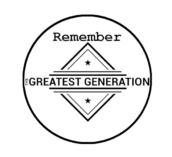
The 1950s were a great time for music, movies, and television. This decade also brought about some of the best stories to hit the bookshelf. Check out five of our favorite 1950s books below.
The Catcher in the Rye
This J. D. Salinger work first appeared in serial form in 1945 and was first published as a novel in 1951. Spending a couple of decades as the most censored book in high schools, it certainly had its controversies. However, its themes of rebellion and its critical reflection of society have made it an enduring work.
Lord of the Rings
The Lord of The Rings Trilogy of books are have been enormously significant in British and American culture. While they are fantasy fiction, they deal with themes of war, morality, and friendship like no other. The influence of the 1954 original can be felt through more modern pop culture like Star Wars, Game of Thrones, and of course the Peter Jackson film adaptation of J. R. R. Tolkien’s books themselves.
Fahrenheit 451
This 1953 dystopian novel by Ray Bradbury is a timeless work with an important message. This is one of those books that so perfectly captured an idea that it remains relevant decades later. The story is centered on the idea of literal book burning as a means to control information. The conflict of censorship, freedom, and control is a theme that has been important through Cold War paranoia, the War on Terror, and today’s social media age.
On the Road
This 1957 work by Jack Kerouac is far from a traditional novel. That, however, is what makes it significant. Kerouac, more than any other name, is synonymous with the “Beat” movement that would come to define late ’50s counterculture. “On the Road” wasn’t just a book, but the start of a movement.
Lord of the Flies
This 1954 novel by Nobel Prize-winning author William Golding takes a dramatic look at society. Through the story of a group of young boys stranded on an island, Golding explores human nature and the conflict between individualism and culture. At times difficult to read, this one turns a mirror on humanity and really makes the reader think.
Have you read these 1950s books? Are any of them your favorite? What else should we have included? Let us know in the comments. For more ’40s and’50s nostalgia, be sure to follow The Greatest Generation on Facebook and Twitter.
